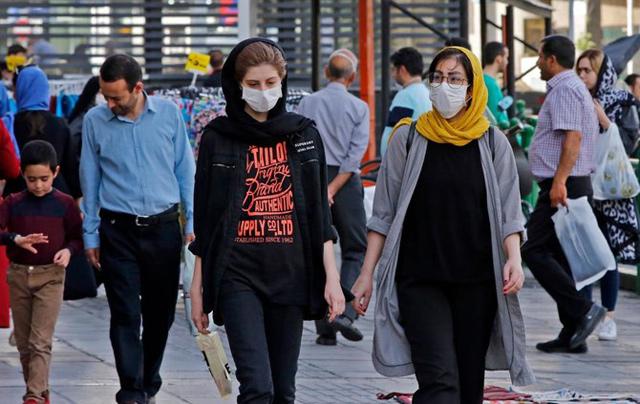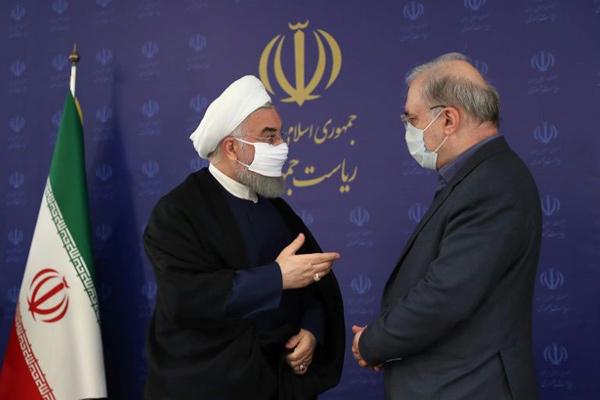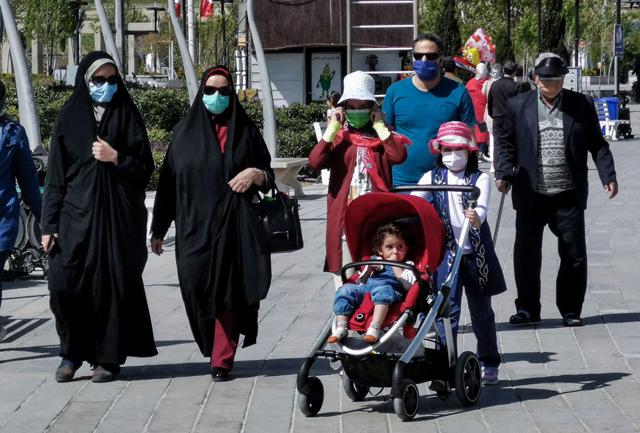You are here
Iran declares ‘full-scale war’ as virus deaths hit record
By AFP - Oct 28,2020 - Last updated at Oct 28,2020

Iranians, some wearing face masks, walk along a street in the capital Tehran, on June 3 (AFP photo)
TEHRAN — Iran declared “full-scale war” with coronavirus as it reported a record death toll on Wednesday for a second straight day and surging infections overload a health care system struggling with US sanctions.
The Middle East’s worst-hit country recorded 415 deaths in 24 hours.
“This is the result of an unprecedented rise in infections and hospitalisations in recent weeks,” Health Ministry spokeswoman Sima Sadat Lari said in a televised address, visibly moved as she gave the grim figures.
“We are now in a full-scale war with the coronavirus,” she said.
The latest fatalities, 69 above Tuesday’s toll which was also a daily record, raised the total virus deaths to 33,714 in the country of 80 million.
Lari said 6,824 people had tested positive for the virus in the past 24 hours, bringing Iran’s declared cases to 558,648.
President Hassan Rouhani warned last week that his country was now faced with “a larger wave of this virus and we have to fight it”.
Figures have kept rising since September.
“The main condition for overcoming this disease... and challenge is seeing change in the beliefs and attitudes of every single person,” Lari said.
She said 27 of Iran’s 31 provinces are currently “red” — the highest risk level on the country’s colour-coded scale.
Tehran province accounts for more than half of Iran’s daily COVID-19 deaths, according to its crisis management chief, Reza Karami.
The burgeoning cases have overloaded Iran’s already stretched hospitals, as renewed US sanctions since its withdrawal from a 2015 nuclear deal with Iran hit all sectors of the Iranian economy.
“Our hospitals are saturated with patients,” Deputy Health Minister Iraj Harirchi said earlier this month.
Queue for beds
Patients are queueing for beds at some hospitals, he said, with staff also having to cope with their own “physical and mental fatigue” and spare parts shortages hampering repairs to medical equipment.
As the health crisis deepens, Iran’s supreme leader Ayatollah Ali Khamenei made a rare public meeting with the novel coronavirus taskforce on Saturday.
“We must do everything” to reduce the number of deaths, Khamenei said.
Rouhani, in an October 19 warning of worse days to come, urged the health ministry to increase the number of daily COVID-19 tests to fight back against the spread.
Health Minister Saeed Namaki told state television on Wednesday that daily tests are to be ramped up to “25,000 to 40,000 or even more”, without giving details.
Iran has been struggling ever since its first two coronavirus cases reported in the city of Qom on February 19, after having announced a suspension of air links with China.
After initial accusations of a slow response, the government closed down most public spaces and non-essential businesses in March, stopping short of a full lockdown.
But it gradually reopened the economy from April, arguing that sanctions left it with no other choice.
The Islamic republic has repeatedly faced charges of playing down virus figures, but officials insist they are being transparent.
Harirchi, however, has acknowledged that the actual figures could be significantly higher, mostly due to shortcomings in testing and reporting.
Many other countries in the Middle East have also witnessed a surge in COVID-19 cases.
In neighbouring Iraq, a lockdown imposed early in the pandemic has been dropped for economic reasons, even as deaths have topped 11,000 out of 460,000 confirmed cases.
Jordan had its worst day on Tuesday with more than 3,800 cases and 44 deaths, reaching a total of 668 dead out of 58,855 declared cases of COVID-19.
The kingdom has taken a series of measures to curb its second wave, including imposing a night-time curfew.
Saudi Arabia has been the worst-hit among the Arab countries in the Gulf, with more than 346,000 infections and 5,300 deaths.
In Israel and the Palestinian territories, more than 363,000 cases have been reported, with recent measures including lockdowns and partial curfews.
Related Articles
TEHRAN — Iranian health authorities on Sunday announced 163 new deaths due to the COVID-19 disease, the country's highest official one-day t
TEHRAN — Iran on Sunday said it will restrict travel to the cities hit hardest by the novel coronavirus, state TV said, amid a record high o
TEHRAN — Iran on Tuesday announced a new record number of daily coronavirus cases, as authorities warned of a "major increase" in infections
















